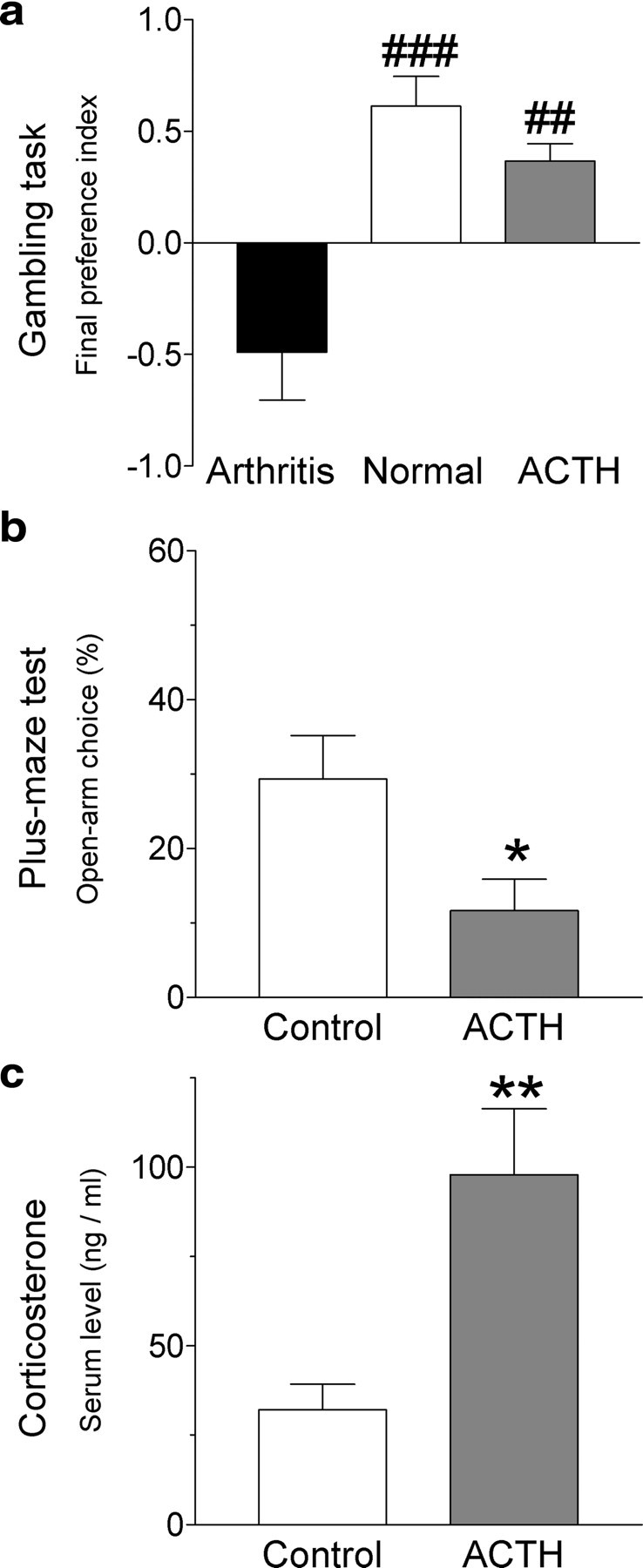Figure 4.

ACTH increases anxiety-like behavior and corticosterone blood levels but does not impair performance on the gambling task. ACTH (0.2 mg/kg in sterile physiological saline) or sterile saline (vehicle) was injected intraperitoneally every day for 4 d. Behavioral tests were performed 1 h after the final injection. a, Final preference index of ACTH-treated rats (n = 6) in the rodent gambling task (see Materials and Methods) was positive like that of normal control rats (n = 5), reflecting preference for the low-risk choice. Preference index of ACTH-treated rats and control rats was significantly different from the negative preference index of arthritic rats (n = 5). Final preference index was calculated for the last 30 consecutive trials using the following formula: (low-risk lever choices) − (high-risk lever choices)/number of completed trials. A negative preference index reflects high-risk decision-making (see Materials and Methods). b, In the elevated plus-maze test, open-arm preference (expressed as percentage; see Materials and Methods) of ACTH-treated rats (n = 6) was significantly decreased compared with vehicle-treated control rats (n = 6). c, Corticosterone serum levels (measured with radioimmunoassay kit; Siemens) (Ferreira et al., 2004) were significantly higher in ACTH-treated rats (n = 6) than in vehicle-treated control rats (n = 6). Bar histograms show mean ± SE. *,**p < 0.05, 0.01 (compared with control; t test); ##,###p < 0.01, 0.001 (compared with arthritis; Tukey's multiple comparison test).
